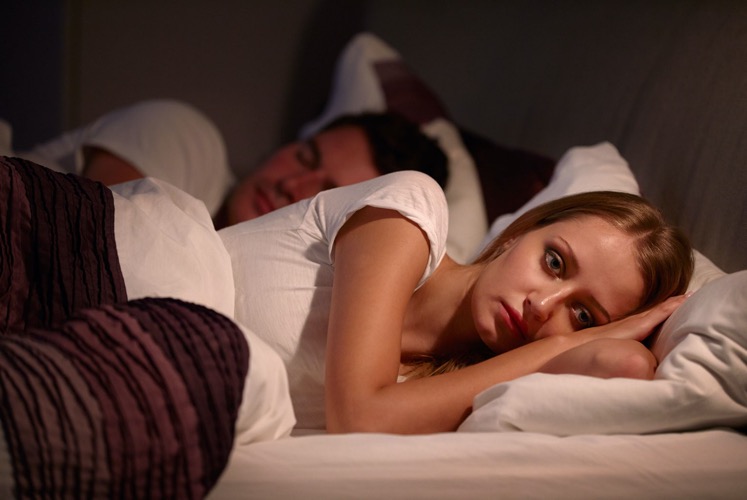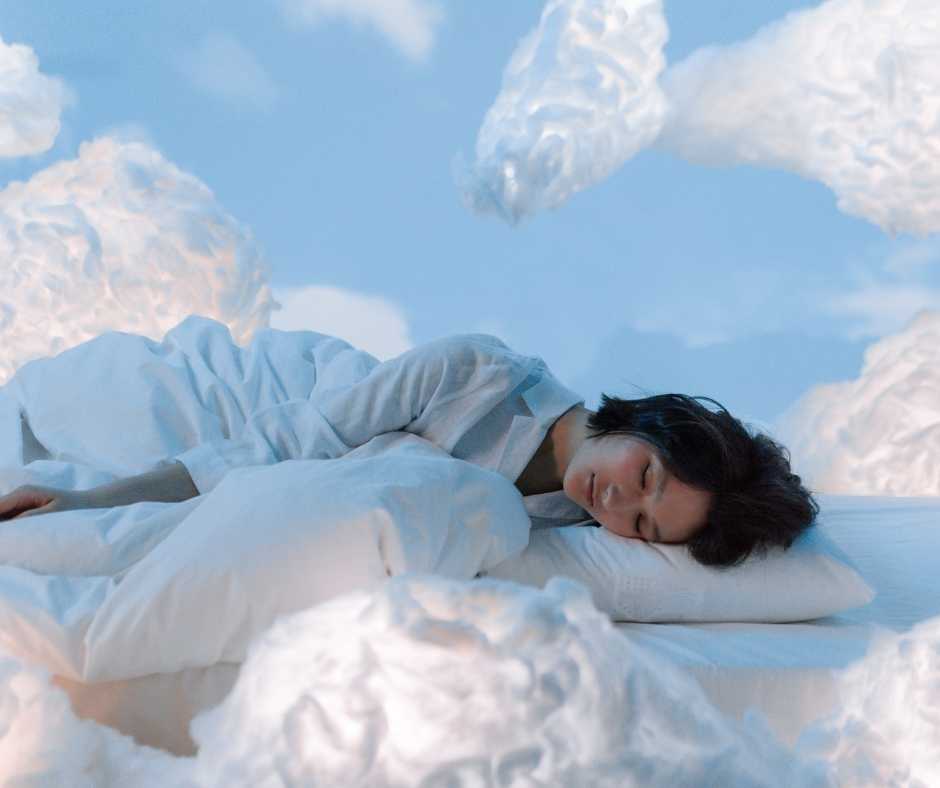Quality sleep is just as important as regular exercise and a good diet, as its deprivation or disruption can have negative effects on hormones, exercise performance and brain function. It can also cause weight gain and increase disease risk. Here are some Top Tips for better sleep.
Over the past few decades, both sleep quality and quantity have been declining. However, the incidence of sleep issues has increased since the pandemic, with all its associated fear and uncertainly, upheaval, restrictions and lifestyle changes according to experts.
COVID has given us many reasons to lose sleep but the huge changes in routines and the decreased activity for many people due to restrictions has led to a veritable pandemic of insomnia or other sleep disturbances.
“It’s a problem everywhere, across all age groups – it’s being called `coronasomnia’. It’s very real and very widespread,” says Angela Drake, a UC Davis Health* clinical professor in the Department of Psychiatry and Behavioral Sciences, who has treated sleep disorders and is trained in managing insomnia without medications. * UC Davis is a renowned Californian academic medical centre: www.health.ucdavis.edu/
“Insomnia was a problem before COVID-19. Now, from what we know anecdotally, the increase is enormous.”
Says Kimberly Hardin, a UC Davis Health professor in the Internal Medicine Department, co-director of the sleep centre and the director of the Sleep Medicine Fellowship Program: “COVID-19 is causing a huge amount of anxiety for so many people.“People worry about jobs, about their kids being home, about getting sick. There’s a lot more anxiety, fear and depression – and those can cause insomnia. Some top tips for making your ZZZZZs achieve an A-plus:

1. Increase bright light exposure during the day
According to leading sports scientist Rudy Mawer writing for Healthline (www.healthline.com), your body has a natural time-keeping clock known as the circadian rhythm.“It affects your brain, body, and hormones, helping you stay awake and telling your body when it’s time to sleep,” says Rudy.“Try getting daily sunlight exposure or — if this is not practical — invest in an artificial bright light device or bulbs.”
2. Reduce blue light exposure in the evening
There are several popular methods you can use to reduce night-time blue light exposure. These include:
- Wear glasses that block blue light.
- Download an app such as f.lux to block blue light on your laptop or computer.
- Install an app that blocks blue light on your smartphone. These are available for both iPhones and Android models.
- Stop watching TV and turn off any bright lights two hours before heading to bed.”
3. Cut down on the caffeine
Caffeine promotes alertness by inhibiting chemicals in the brain that promote sleep and, especially when consumed late in the day, it stimulates your nervous system and may stop your body from naturally relaxing at night.It is absorbed rapidly into the bloodstream and reaches peak levels within 30-70 minutes. Its effects can then last three to seven hours, but it may take up to 24 hours to fully eliminate caffeine from the body, according to Australia’s Sleep Health Foundation: www.sleephealthfoundation.org.au/“If you want to get your sleep on track, quit the caffeine after midday,” she says. “If you can’t come to terms with cutting out coffee after that, try substituting it with the decaffeinated variety.
4. Don’t consume alcohol to excess, or late in the day
“Alcohol is a central nervous system depressant that causes brain activity to slow down,” says Danielle Pacheco, writing for the US Sleep Foundation, medically reviewed by prominent sleep physician Dr Abhinav Singh: www.sleepfoundation.org. Alcohol has sedative effects that can induce feelings of relaxation and sleepiness, but the consumption of alcohol – especially in excess – has been linked to poor sleep quality and duration. Research has shown sleepers who drink large amounts of alcohol before going to bed are often prone to delayed sleep onset.
5. Nip napping in the bud
An “power” nap may refresh and give you more energy to get on with the rest of your day. However, if you make a habit of it, or are a poor night-time sleeper anyway, daytime snoozes can confuse your internal clock and you may struggle to sleep well at night.It’s also recommended to sleep and wake at consistent times – your body’s circadian rhythm functions on a set loop, aligning itself with sunrise and sunset.
6. The magic of melatonin
Often referred to as the sleep hormone, melatonin is produced by the pineal gland and is a central part of the body’s sleep-wake cycle. Its production increases with evening darkness, promoting healthy sleep and helping to orient the circadian rhythm.Melatonin can be produced externally in a laboratory, most often sold as a pill, capsule, chewable, or liquid. A medical grade melatonin tablet, Circadin, once available only on prescription, is now available over the counter in Australia for people aged 55 and over.Talking with a doctor about melatonin and sleeping problems can help reveal whether a person has a medical condition, such as sleep apnoea.
7. Marvellous Magnesium
Magnesium is important for many processes in the body, including regulating muscle and nerve function, blood sugar levels, blood pressure and making protein, bone, and DNA. It can be taken orally in powder, tablet or capsule form, in oil form massaged into the skin, or used as bath salts – a common type is Epsom Salts.
8. Keep it moving
Exercise is one of the best science-backed ways to enhance all aspects of sleep and health. In one US study, in people with severe insomnia, exercise offered more benefits than most drugs.
9. Avoid sleeping pills and sedatives
According to the Victorian Government’s Better Health Channel – www.betterhealth.vic.gov.au/ – drawbacks of these drugs include daytime sleepiness, failure to address the causes of sleeping problems, and the “rebound” effect. After a stint of using sleeping pills or sedatives, falling asleep without them tends to be even harder.
10. Improve your sleeping environment
Quality, comfortable and clean mattresses, pillows and bedding (collectively known as sleep hygiene) are fundamental to good sleep. Good sleep is more likely if your bedroom feels restful and comfortable.
11. Avoid late might eatings
When we eat late at night, especially a large and/or rich meal, the muscles that digest and metabolise food have to keep working when they should be resting, according to dietitian Kate Watts, for Cone Health, a private, not-for-profit, healthcare delivery system based in the US – www.conehealth.comTry to leave at least two hours between your last meal or snack and bedtime. If you often have night-time heartburn, stop eating 3-4 hours before lying down.
12. Relax!
Relaxation techniques before bed have been shown to improve sleep quality and are another common technique used to treat insomnia and other sleep issues. Strategies include listening to relaxing music, reading a book, meditating, deep breathing, meditation and visualisation.
This article first appeared in Thrive Magazine and is reproduced here with permission.

